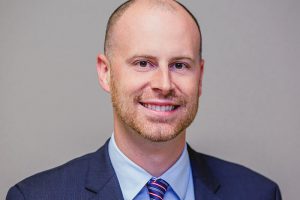 There is only one guarantee about money. Nobody thinks about it the same way that you do. Period.
There is only one guarantee about money. Nobody thinks about it the same way that you do. Period.
As I sit here today, on the 15th anniversary of becoming a financial planner and starting with The Planning Center, I am reflecting on the thousands of client meetings of which I have been a part. The thing that has fascinated me most about the notion of money is that EVERYONE’s perspective on it is distinctly unique and different. No two people on the planet think about money in the exact same way!
When I work with a single person, I pay attention to how they think about money and how I can help them with their life and finances. Where it always gets interesting is working with couples. Not only is my view of money different, their views of it are different as well.
My job is much more challenging being the interface between a couple’s thoughts and visions around money. That is because now I have two perspectives to consider. Two different people need to make decisions in a collective manner.
 My good friend Carl Richards illustrated this dilemma on a napkin. His drawing of the “Behavior Gap” shows a square on one side with “MY view of $” inside it, and a circle with “YOUR view of $” inside it. It makes us all quickly laugh at the obviousness of this fact.
My good friend Carl Richards illustrated this dilemma on a napkin. His drawing of the “Behavior Gap” shows a square on one side with “MY view of $” inside it, and a circle with “YOUR view of $” inside it. It makes us all quickly laugh at the obviousness of this fact.
We should all be aware that this is a big issue. Think about all the internal stereotypes and sayings we might tell ourselves about someone else’s perspective: “All you care about is buying shoes,” or “All you care about is buying golf clubs.” When the reality is—it goes much deeper than that.
What does money mean to us? What does it create and do for us? How do we FEEL about it? What emotions do we have about money? What are we afraid of? What makes us happy? How does money fit into this? What did we see happening with money when we were growing up? This is not easy stuff to deal with. Money is complex and how we feel about it is even more complex.
Money is essential for our survival and, luckily, we are able to work for it to be able to buy whatever we need. Yet, it is such an abstract thing. Yes, you can hold a $100 bill in your hand, but you can also swipe a card at a machine to access it, pay for a latte with your smartphone, or pay back a friend that bought you concert tickets via Venmo. We need money competency to survive in this world, and if we don’t have it then our basic needs like food, shelter, and clothing are jeopardized.
As Dick Wagner, the great financial planning pioneer, mentor and friend to all financial planners, once said, “Money is the most powerful and pervasive secular force on the planet.” The three main agreements about money are that: (1) It is a store of value, (2) It is a medium of exchange, and (3) It is a unit of accounting. Often times it is easier to conceptualize the exterior aspects of money, and tougher for us to be cognizant of the “interior” aspects of money or how we think about it.
Dick was also smart enough to name for us what I am describing. He said, “We don’t just talk about the stuff of our imagination, our dreams, idiosyncrasies, habits and feelings, we call that our psychology.” When it comes to the study of money and value exchange, the study of the relationships between human beings and money, and the study of minds, brains, customs and behaviors with respect to money and the money forces…Dick called this “Finology.”
Finology is “the applied science of financial economics.” It is rooted from the word “finance.” Dick’s word fills the void where none existed in the English language to describe the relationship between human beings and money.
When we in the financial planning community assess the real work we do, you could definitely say we are Finologists. Honestly, I would go so far as to say that, as individuals, we are ALL finologists as well. As we think about our own and others’ idiosyncrasies, we need to remember that there isn’t right and wrong thinking. Our thinking is simply our own. As the great philosopher Jacob Needleman once observed, “Everybody is weird about money!” Yes we all are. And that’s OK.
 Matt Sivertsen, CFP® is a Financial Planner in the Quad Cities office of The Planning Center, a fee-only financial planning and wealth management firm.
Matt Sivertsen, CFP® is a Financial Planner in the Quad Cities office of The Planning Center, a fee-only financial planning and wealth management firm.
Please email him at: matt@theplanningcenter.com.






